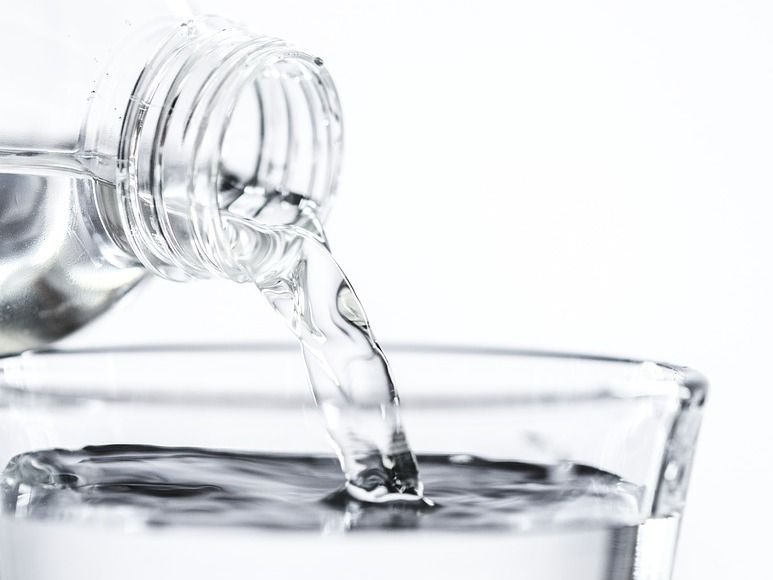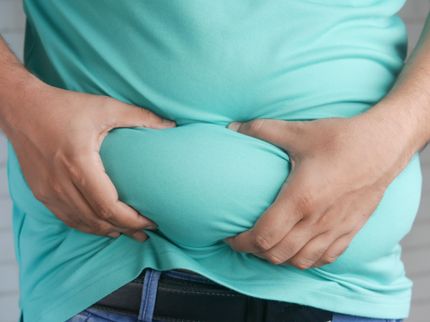Harmless or hormone disorder?
A new test enables a quick diagnosis for drinking by the liter
Advertisement
Drinking excessive amounts of fluids can be a medically unremarkable habit, but it could also signify a rare hormone disorder. A new procedure now enables a fast and reliable diagnosis.

Drinking by the litre may be caused by an illness. A new test can quickly detect whether someone has a hormone deficiency or not.
rawpixel, pixabay.com, CC0
Drinking more than three liters per day with the equivalent increase in urination is regarded as too much. This drinking by the liter – known as “polyuria polydipsia syndrome“– usually develops over time through habit, or can be a side effect of a mental illness.
Hormone deficiency as a cause
In rare cases, however, it may be caused by diabetes insipidus. This is when the pituitary gland lacks the hormone vasopressin, which regulates the water and salt content in our body. Patients have a decreased ability to concentrate the urine, therefore lose a lot of fluid and have to increase their fluid intake accordingly to prevent dehydration.
The distinction between what is considered a "harmless" primary polydipsia and a diabetes insipidus is crucial, as their therapy is fundamentally different. Diabetes insipidus must be treated with the hormone vasopressin, while patients with primary polydipsia require behavioral therapy to reduce their habitual drinking. A wrong therapy can have life-threatening consequences as treatment with vasopressin without indication can lead to water intoxication.
Blood test instead of water deprivation test
Previously, the differentiation between these two conditions was made using a “water deprivation test” in which the patient was not allowed to drink any liquid for 16 hours after which the doctors would interpret the concentration of the urine. However, this test was often misleading and only led in about half of all cases to a correct diagnosis. Furthermore, a 16-hour water deprivation test is extremely unpleasant and stressful for the patients.
A study involving around 150 patients in 11 clinics compared the conventional “water deprivation test” with a new diagnostic method. It consists of a 2-hour infusion with a hypertonic saline solution; after that, the concentration of the biomarker copeptin, which reflects the content of the hormone vasopressin in the blood, is measured in the patients' blood.
Improved diagnosis and therapy
This method has a much higher diagnostic accuracy: 97 percent of all patients were correctly diagnosed and treated quickly. The new test is now available for clinical use.
Original publication
Wiebke Fenske, Julie Refardt, Irina Chifu, Ingeborg Schnyder, Bettina Winzeler, Juliana Drummond, Antônio Ribeiro-Oliveira Jr, Tilman Drescher, Stefan Bilz, Deborah R. Vogt, Uwe Malzahn, Matthias Kroiss, Emanuel Christ, Christoph Henzen, Stefan Fischli, Anke Tönjes, Beat Mueller, Jochen Schopohl, Jörg Flitsch, Georg Brabant, Martin Fassnacht, and Mirjam Christ-Crain; "A Copeptin-Based Approach in the Diagnosis of Diabetes Insipidus"; The New England Journal of Medicine; 2018
Other news from the department science
Most read news
More news from our other portals
See the theme worlds for related content
Topic world Diagnostics
Diagnostics is at the heart of modern medicine and forms a crucial interface between research and patient care in the biotech and pharmaceutical industries. It not only enables early detection and monitoring of disease, but also plays a central role in individualized medicine by enabling targeted therapies based on an individual's genetic and molecular signature.

Topic world Diagnostics
Diagnostics is at the heart of modern medicine and forms a crucial interface between research and patient care in the biotech and pharmaceutical industries. It not only enables early detection and monitoring of disease, but also plays a central role in individualized medicine by enabling targeted therapies based on an individual's genetic and molecular signature.






















































